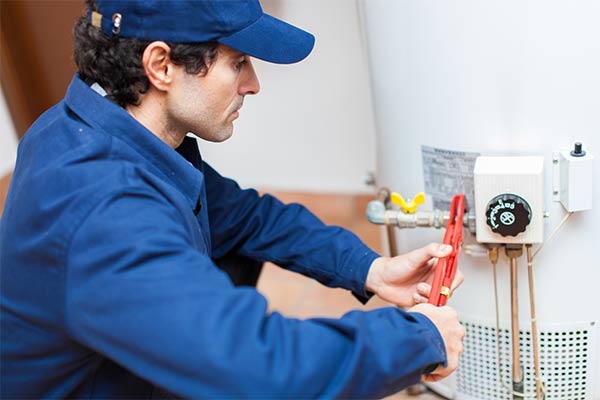Quality matters when hiring for a big project. Call a Best Pick now!
There’s a certain sense of accomplishment that comes from building something on your own or fixing a problem without any help. It also doesn’t hurt that it’s often a lot cheaper than calling in a professional to do the job. However, going overboard on the do-it-yourself projects could actually cost you more in the long run if you’re not careful. Keep reading to learn what not to do when it comes to your next DIY project.
When You Shouldn’t Do It Yourself
 Plumbing. While something as simple as a leak or clog might be tempting to address on your own, you’re better off leaving anything remotely tricky to the plumbing pros. One wrong move and you could have a burst pipe or a flooded house.
Plumbing. While something as simple as a leak or clog might be tempting to address on your own, you’re better off leaving anything remotely tricky to the plumbing pros. One wrong move and you could have a burst pipe or a flooded house.
Electrical work. Don’t set yourself up for a big shock. It’s so easy to injure yourself or cause a fire with an electrical mishap. Electricians undergo years of training to become professionals, so let them handle the job.
Gas line installation or repair. Because gas is invisible and sometimes odorless, it can be incredibly difficult for an untrained person to detect. Gas poisoning can be deadly, and nothing is more important than the safety of you and your loved ones.
 Tree removal. Between the heights and heavy lifting involved, tree removal doesn’t make for a very good DIY project. Tree removal companies will have the equipment needed to safely take down and remove the tree, ensuring it doesn’t damage your property or anyone else’s.
Tree removal. Between the heights and heavy lifting involved, tree removal doesn’t make for a very good DIY project. Tree removal companies will have the equipment needed to safely take down and remove the tree, ensuring it doesn’t damage your property or anyone else’s.
Roofing. After a storm, you may want to check whether your roof was damaged and attempt repairs yourself, but losing your balance at that height could be devastating. Professional roofers will often conduct inspections for free, so don’t gamble on your balancing skills.
DIY Mistakes to Avoid
Using the wrong tools. Thousands of people are injured from improper tool and machinery use each year. Make sure your toolbox is stocked with the right implements to get the job done.
 Skipping the ladder. Don’t stack books or boxes to stand on; instead, always use a ladder or step stool that’s in good condition. Make sure it doesn’t wobble, and enlist the help of a friend or family member to spot you. Avoid placing anything on a step below you; you can forget it’s there and trip over it on your way down.
Skipping the ladder. Don’t stack books or boxes to stand on; instead, always use a ladder or step stool that’s in good condition. Make sure it doesn’t wobble, and enlist the help of a friend or family member to spot you. Avoid placing anything on a step below you; you can forget it’s there and trip over it on your way down.
Ignoring regulations and codes. Many larger projects, like fence installation or room additions, require permits and must meet your city or state’s regulations. Make sure the work you’re doing is up to code. Hiring a contractor is often more convenient for this type of work because they will have better knowledge of what permits are required and can take care of the paperwork for you.
Testing your skills on irreplaceable items. Some of the most popular DIY projects include restoring vintage pieces, but if this is your first DIY rodeo, you may want to avoid updating any sentimental items. Make sure your skills are up to par before risking irreparable damage to a piece that has been in your family for years.
Doing your own home updates can be fulfilling and fun for the whole family. It’s just important to choose projects that won’t endanger anyone or damage your property. Use these DIY tips to stay safe, and don’t be too stubborn to hire a professional contractor when the situation calls for one.


























